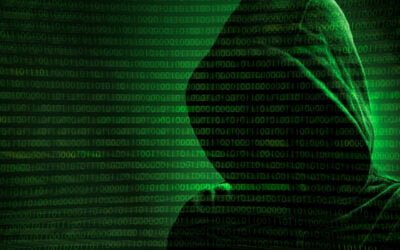Can hacking really be learned without formal education? Many people wonder if it’s possible to acquire hacking skills without a mentor or a degree in computer science. In this article, I will delve into the world of self-taught hacking and explore the steps and resources needed to become a proficient hacker through self-study.
Key Takeaways:
- Self-taught hacking is possible, even without formal education.
- Passion, dedication, and continuous learning are key to becoming a proficient hacker.
- Joining the hacking community can provide valuable support and resources.
- Developing fundamental cybersecurity skills is essential for beginners.
- A well-defined training plan is crucial for optimizing learning and gaining practical experience.
What is Hacking?
Hacking involves the art of finding vulnerabilities in computer systems, devices, or networks to gain unauthorized access. However, it goes beyond just exploiting weaknesses. Hacking requires a unique mindset, characterized by outside-the-box thinking, creative problem-solving, and a relentless pursuit of knowledge. It is a technical discipline that demands continuous adaptation to evolving challenges.
When we talk about hacking, it’s important to understand that it encompasses various types. It’s not limited to just infiltrating digital systems; it can also involve physical and social hacking. The hacking mindset is about looking beyond the surface and questioning the status quo. It’s about thinking differently, exploring unconventional paths, and challenging the boundaries of what is possible.
“Hacking is not just about breaking into systems; it’s about breaking through limitations and pushing the boundaries of what is possible.”
What is Hacking?
At its core, hacking is a form of exploration and problem-solving. It’s about understanding how systems work, identifying vulnerabilities, and manipulating them for different purposes. While hacking can sometimes be associated with negative connotations, it’s important to recognize that there are ethical hackers who use their skills for the greater good. They leverage their expertise to help organizations identify and fix vulnerabilities, thereby strengthening security.
| Hacking Types | Description |
|---|---|
| Digital Hacking | Exploiting vulnerabilities in computer systems, networks, and software. |
| Physical Hacking | Gaining unauthorized access to physical spaces, devices, or systems. |
| Social Engineering | Manipulating people to disclose sensitive information or perform actions they wouldn’t otherwise. |
As hackers, we constantly challenge ourselves to think outside the box and find innovative solutions to complex problems. We employ a mix of technical skills, creativity, and persistence to navigate the ever-evolving landscape of cybersecurity.
Conclusion
Understanding the true essence of hacking is essential to embarking on a journey of self-taught education in this field. It’s about more than just breaking into systems; it’s about breaking through limitations and pushing the boundaries of what is possible. By embracing the hacking mindset and continuously honing our knowledge and skills, we can unlock our potential in the world of cybersecurity.
Ethical Hacking vs. Unethical Hacking
In the world of hacking, there is a clear distinction between ethical hacking and unethical hacking. Ethical hacking, also known as “good hacking,” is carried out by individuals known as white hat hackers. These hackers use their skills and knowledge to identify vulnerabilities in computer systems, networks, and software with the permission of the organization or individual. Their goal is to improve security by helping to patch these vulnerabilities and protect against potential cyber threats.
On the other hand, unethical hacking, often referred to as “bad hacking,” involves individuals known as black hat hackers. These hackers engage in hacking activities with malicious intent, exploiting vulnerabilities for personal gain, causing harm, or engaging in criminal activities. Their actions are unauthorized and often illegal.
Lastly, there are gray hat hackers who fall somewhere in between ethical and unethical hacking. Gray hat hackers may use their skills for good intentions but without proper authorization. They may discover vulnerabilities and exploit them to bring attention to the issue, hoping to encourage organizations to improve their security. While their intentions may be noble, their actions still fall under the category of unethical hacking as they are operating without permission.
| Hacking Type | Description |
|---|---|
| Ethical Hacking (White Hat) | Authorized hacking for improving security |
| Unethical Hacking (Black Hat) | Hacking with malicious intent for personal gain |
| Gray Hat Hacking | Hacking with potentially good intentions, but without authorization |
It’s important to understand the ethical implications of hacking and to use hacking skills responsibly. Ethical hackers play a crucial role in preventing cyber attacks and improving cybersecurity measures. By using their skills for the greater good, they contribute to a safer digital landscape. Unethical hacking, on the other hand, poses a threat to individuals, organizations, and society as a whole.
Can Anyone Learn How to Hack?

Learning to hack is not limited to those with formal education or technical degrees. With the right mindset and dedication, anyone can acquire the skills necessary to become a proficient hacker. While a degree in computer science or cybersecurity can be beneficial, it is not a prerequisite for success in the field.
To embark on a journey of self-taught hacking, certain prerequisites are essential. A passion for problem-solving, the ability to think outside the box, and a love of continuous learning are key traits of successful hackers. The world of hacking constantly evolves, so self-motivation and dedication to continuous learning are crucial in staying updated with the latest techniques and technologies.
While technical skills form the foundation of hacking, it is equally important to develop a strong understanding of fundamental concepts. This includes networking, operating systems like Linux and Windows, and scripting languages like Python. Mastering these core domains will provide aspiring hackers with the necessary knowledge and skills to tackle more advanced hacking techniques.
The Journey to Becoming a Hacker
Becoming a hacker is a journey that requires self-guided education and continuous improvement. It involves joining the hacking community, networking with other hackers, and seeking inspiration from cybersecurity professionals. Engaging in forums and participating in Capture the Flag (CTF) challenges can provide valuable insights and opportunities for learning from others.
Creating a powerful training plan is essential for aspiring hackers. This plan should include a combination of theoretical knowledge and hands-on experience. Online courses and certifications can offer structured learning, while participating in bug bounty programs can provide real-world experience and rewards.
In conclusion, hacking is a discipline that can be learned by anyone with the right mindset and dedication. While formal education can be helpful, it is not a requirement for success. By developing the necessary prerequisites, creating a personalized training plan, and immersing themselves in the hacking community, aspiring hackers can unlock their potential and embark on an exciting journey in the field of cybersecurity.
Joining the Hacking Community

Becoming part of the hacking community is an invaluable step for aspiring hackers. By connecting with like-minded individuals, learning from others, and forming study buddies, you gain access to a wealth of knowledge and support. The hacking community is a vibrant and collaborative space where you can find inspiration, share ideas, and continuously improve your skills.
Networking is a key aspect of joining the hacking community. By engaging with other hackers, you can tap into their experiences and expertise, opening doors to new learning opportunities. Online forums, social media groups, and specialized platforms dedicated to cybersecurity are excellent places to connect with fellow hackers.
Study buddies are also instrumental in your hacking journey. Finding like-minded individuals who are also driven to learn hacking can enhance your progress. You can share resources, collaborate on projects, and motivate each other to push boundaries. Study buddies provide a support system that keeps you accountable and motivated, making the journey more enjoyable and fulfilling.
Where to Start as a Beginner Hacker
As a beginner hacker, there are several fundamental cybersecurity skills that you should focus on to kickstart your journey in the world of hacking. These skills will serve as the building blocks for your learning and development.
First and foremost, networking knowledge is crucial. Understanding how networks function and being able to identify and exploit vulnerabilities is essential for hacking. By familiarizing yourself with networking concepts and protocols, you’ll be better equipped to navigate and manipulate systems to your advantage.
Another important area to focus on is operating systems. Linux and Windows are two operating systems that are commonly used in the cybersecurity field. By gaining proficiency in these operating systems, you’ll have a firm foundation for executing various hacking techniques and strategies.
Scripting languages, such as Python, are also essential in hacking. Python is widely used for automating tasks and creating scripts that can be used in hacking scenarios. By mastering scripting, you’ll be able to create your own tools and tailor them to suit your hacking objectives.
Mastering the Fundamentals for Accelerated Learning
To accelerate your learning as a beginner hacker, it’s important to focus on mastering the fundamentals. By fully understanding the core domains of hacking, you’ll be able to apply your knowledge and skills more effectively in complex scenarios.
By dedicating time and effort to developing these fundamental cybersecurity skills, you’ll be well on your way to becoming a proficient hacker. Remember, hacking is a continuous learning journey, so stay curious, keep exploring new techniques, and always strive to improve your skills.
| Beginner Hacking Skills | Description |
|---|---|
| Networking | Understanding how networks function and exploiting vulnerabilities |
| Operating Systems | Proficiency in Linux and Windows for executing hacking techniques |
| Scripting Languages | Mastery of Python for automating tasks and creating hacking scripts |
| Mastering the Fundamentals | Developing a strong foundation in core hacking domains for accelerated learning |
Creating a Powerful Training Plan
When learning to hack from scratch, it’s essential to create a powerful training plan that optimizes your learning and skill development. This plan should incorporate a combination of theoretical knowledge and practical experience to ensure a well-rounded education in cybersecurity.
One effective approach is to enroll in online courses and certifications that provide structured learning in hacking techniques and cybersecurity fundamentals. These courses offer guidance and resources to help you gain a strong foundation in the field. By completing these programs, you can acquire valuable knowledge and demonstrate your expertise to potential employers.
However, hands-on practice is equally important in honing your hacking skills. Utilize simulated hacking environments, such as virtual machines or ethical hacking labs, to gain practical experience in a controlled setting. These hands-on activities will allow you to apply your theoretical knowledge, identify vulnerabilities, and practice exploiting them. Additionally, participating in bug bounty programs provides an opportunity to test your skills on real-world applications and systems while earning rewards for your discoveries.
Sample Training Plan:
| Phase | Activities |
|---|---|
| Phase 1: Fundamentals |
|
| Phase 2: Practical Experience |
|
| Phase 3: Continuous Learning |
|
By following a comprehensive training plan like the sample provided, you can optimize your learning and gain the practical experience necessary to become a proficient hacker. Remember to continuously adapt your plan based on your progress and the evolving landscape of cybersecurity. With dedication and perseverance, anyone can learn to hack from scratch and unlock their potential in this exciting field.
Conclusion
In conclusion, self-taught hacking is indeed a viable path for those interested in cybersecurity. While a formal education can be beneficial, it is not a requirement for unlocking your potential in this field. Through self-guided hacking education, you can gain the necessary skills and knowledge to become a proficient hacker.
By embracing a mindset of continuous learning and problem-solving, you can navigate the world of hacking with confidence. Joining the hacking community, developing fundamental skills, and creating a personalized training plan are essential steps in your journey to becoming a hacker.
Remember, self-study can be challenging, but with dedication and a passion for exploring the depths of cybersecurity, you can unlock your true potential. So go ahead, embark on this exciting adventure of self-guided hacking education and open doors to a world of opportunities.
Can Hacking Be a Viable Career Path for Self-Taught Individuals?
Can hacking as a viable career option be pursued by self-taught individuals? With the continuous rise in cyber threats, the demand for skilled hackers is also increasing. Self-taught hackers have the advantage of flexibility and creativity, allowing them to exploit vulnerabilities. By building a diverse skill set and staying updated on security trends, self-taught individuals can carve out a successful career in ethical hacking.
FAQ
Can hacking be learned without formal education?
Yes, anyone can learn how to hack with the right mindset and commitment. While a degree in computer science or cybersecurity can be helpful, it’s not a prerequisite.
What is hacking?
Hacking involves finding weaknesses in computer systems, devices, or networks in order to gain unauthorized access. It requires a mindset of outside-the-box thinking, creativity, and persistence.
What is the difference between ethical hacking and unethical hacking?
Ethical hackers, also known as white hat hackers, use their skills to strengthen security by identifying vulnerabilities and helping organizations fix them. Unethical hackers, such as black hat hackers, engage in malicious activities for personal gain.
Can anyone learn how to hack?
Yes, anyone can learn how to hack with the right mindset and dedication. While a formal degree can be beneficial, it is not a requirement for becoming a proficient hacker.
How can I join the hacking community?
Joining the hacking community can greatly enhance the learning process. Networking with other hackers, participating in forums, and engaging with cybersecurity professionals can provide valuable guidance and resources.
Where should I start as a beginner hacker?
Beginner hackers should start by developing fundamental cybersecurity skills, gaining knowledge in networking, operating systems like Linux and Windows, and scripting languages like Python.
How can I create a powerful training plan?
Creating a comprehensive training plan involves a combination of theoretical knowledge, practical experience, online courses and certifications, and hands-on practice in a simulated hacking environment.
Conclusion
Hacking can be self-taught through dedication, passion for problem-solving, and continuous learning. By joining the hacking community, developing fundamental skills, and creating a personalized training plan, aspiring hackers can unlock their potential and embark on a rewarding journey in the world of cybersecurity.




